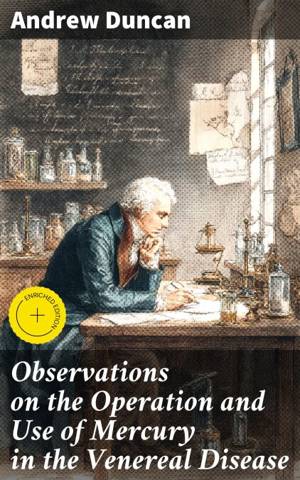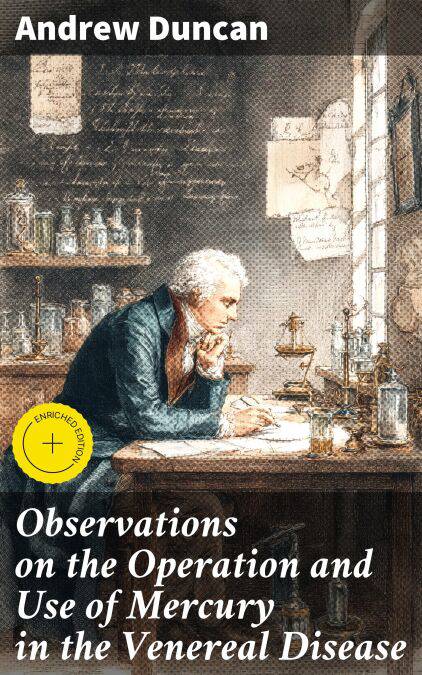
- Afhalen na 1 uur in een winkel met voorraad
- Gratis thuislevering in België vanaf € 30
- Ruim aanbod met 7 miljoen producten
- Afhalen na 1 uur in een winkel met voorraad
- Gratis thuislevering in België vanaf € 30
- Ruim aanbod met 7 miljoen producten
Zoeken
Observations on the Operation and Use of Mercury in the Venereal Disease E-BOOK
Enriched edition. Insights into Historical Venereal Treatments with Mercury
Andrew Duncan
E-book | Engels
€ 1,99
+ 1 punten
Omschrijving
Andrew Duncan's "Observations on the Operation and Use of Mercury in the Venereal Disease" stands as a pivotal exploration in the medical literature of the late 18th century. Through meticulous observation and analysis, Duncan dissects the therapeutic applications of mercury, a common remedy for syphilis and other venereal afflictions during this era. His writing is characterized by a blend of empirical inquiry and clear prose, situating the work within the context of Enlightenment thinking, where science and reason began to challenge traditional medical practices. The book serves both as a clinical guide and a reflective commentary on the societal implications of venereal diseases and their treatment, echoing the anxieties and innovations of its time. Andrew Duncan, a prominent physician and medical reformer, was influenced by the burgeoning field of clinical observation and the increasing recognition of venereal disease as a public health issue. His background in medicine, combined with his desire to elevate the standards of medical practice in Scotland, informed his approach to the use of mercury. As a member of the Edinburgh Medical School, Duncan was part of a vibrant intellectual community that emphasized empirical research and a progressive outlook on medical therapies. This book is an invaluable resource for historians of medicine and practitioners alike, offering insight into the evolution of treatments for venereal diseases. Duncan's balanced critique and descriptive analysis not only shed light on historical medical practices but also invite contemporary readers to reflect on the ethical considerations surrounding treatment methodologies. Highly recommended for those interested in the intersection of medicine, history, and ethics.
In this enriched edition, we have carefully created added value for your reading experience:
- Hand‐picked Memorable Quotes shine a spotlight on moments of literary brilliance.
- Interactive footnotes clarify unusual references, historical allusions, and archaic phrases for an effortless, more informed read.
In this enriched edition, we have carefully created added value for your reading experience:
- Hand‐picked Memorable Quotes shine a spotlight on moments of literary brilliance.
- Interactive footnotes clarify unusual references, historical allusions, and archaic phrases for an effortless, more informed read.
Specificaties
Betrokkenen
- Auteur(s):
- Uitgeverij:
Inhoud
- Aantal bladzijden:
- 56
- Taal:
- Engels
Eigenschappen
- Productcode (EAN):
- 4064066429188
- Verschijningsdatum:
- 20/08/2022
- Uitvoering:
- E-book
- Beveiligd met:
- Digital watermarking
- Formaat:
- ePub

Alleen bij Standaard Boekhandel
+ 1 punten op je klantenkaart van Standaard Boekhandel
Beoordelingen
We publiceren alleen reviews die voldoen aan de voorwaarden voor reviews. Bekijk onze voorwaarden voor reviews.







